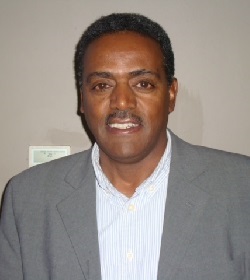
Ian F. Akyildiz
Title:
Maritime Communication: Research Challenges And Directions
Bio:
I. F. Akyildiz (Life Fellow, IEEE) received the B.S., M.S., and Ph.D. degrees in Electrical and Computer Engineering from the University of Erlangen–Nürnberg, Germany, in 1978, 1981, and 1984, respectively. Currently he is the Founder and President of the Truva Inc., a consulting company based in Georgia, USA, since 1989. He is an Advisory Board member at the Technology Innovation Institute (TII) Abu Dhabi, United Arab Emirates, since June 2020. He is the Founder and the Editor-in-Chief of the newly established International Telecommunication Union Journal on Future and Evolving Technologies (ITU J-FET) since August 2020. He served as the Ken Byers Chair Professor in Telecommunications, the Past Chair of the Telecom Group at the ECE, and the Director of the Broadband Wireless Networking Laboratory, Georgia Institute of Technology, from 1985 to 2020. He had many international affiliations during his career and established research centers in Spain, South Africa, Finland, Saudi Arabia, Germany, Russia, India, and Cyprus. Dr. Akyildiz is an ACM Fellow since 1997. He received numerous awards from IEEE, ACM, and other professional organizations, including Humboldt Award from Germany and Tubitak Award from Turkey. In October 2021, according to Google Scholar his h-index is 131 and the total number of citations to his articles is more than 130+K. His current research interests include maritime communications, 6G/7G wireless systems, Terahertz communication, reconfigurable intelligent surfaces, nano-networks, Internet of Space Things/CUBESATs, Internet of Bio-Nano Things, molecular communication, and underground communication
Abstract:
Maritime communication systems have drawn the attention of the research community in the last two decades. This growing interest can largely be attributed to new civil and military applications enabled by large-scale networks of underwater devices (e.g., underwater static and mobile sensors, unmanned autonomous vehicles (AUVs), and autonomous robots), which can retrieve information from the aquatic and marine environment, perform in-network processing on the extracted data, and transmit the collected information to remote locations. Although many solutions have been introduced the last two decades mainly on acoustic communication paradigm, many grand challenges such as low data rates, long latency, still exist. This talk revisits the grand challenges and shows how they can be solved for acoustic communications. Moreover, other communication paradigms such as Magnetic Induction, Optical, Quantum are explored. In order to make the underwater architectures compatible with 5G/6G wireless systems, the SDN/NFV solutions are presented. Overall, challenges and possible solutions for the above proposed ideas are explored in this talk.

Fisseha Mekuria
Title: Smart Spectrum Sharing A path to Connect the Unconnected and
Address 5G&Beyond High Spectrum Demand
Bio:
Dr. F. Mekuria is a chief research scientist and ICT innovations leader at the CSIR, South Africa. He has a PhD from Linköping University, Sweden, in wireless Communications and Signal Processing. He worked for 10 years as Senior research Engineer at Ericsson Mobile Communications R&D lab in Sweden, and is author of 17 US/EPO patents. He has published over 80 peer reviewed publications, Journals & book chapters.
Working with mobile and internet service industry directed the setting up of next generation network labs, development of mobile applications programming courses, Network resource sharing for affordable broadband connectivity, and development of telecom regulatory frameworks and capacity building for telecom regulators in Africa. At present he leads the 5G and Affordable Broadband Networks research at the CSIR, including technologies for addressing the next billion unconnected populations and promoting digital inclusion. His research interests include radio-access technologies and smart spectrum sharing toolboxes for 5G and beyond networks.
He is the recipient of the Google Research award for Mobile Computing and a member of the advisory board for the EU 5G Future Internet projects and a Judge for the GSMA global mobile awards in support of Green ICT technologies in future wireless networks. He has a keen interest to use emerging digital technologies for the restoration of biodiversity and fulfilment of UN sustainability goals. Dr Mekuria, is also involved in postgraduate research & skills development in wireless communications, including sustainable business ecosystems for emerging wireless networks, as Adj. Professor at the University of Johannesburg, Dept. EEES, and University of Witwatersrand, Wits Business School, Johannesburg, South Africa.
Abstract:
Spectrum is the superhighway enabling the myriad of wireless network technologies and digital services. The keynote address will deliberate on recent research on smart spectrum management and development of unlicensed wireless network technologies, including current 5G research activities to develop use cases and associated technologies to address the requirements of affordable wireless broadband. Research on spectrum underutilization has seen a recent upsurge due to the high demand requirements of 5G mobile ICT standard and associated use cases. A study across the UHF radio frequency spectrum by CSIR and partners, showed 50% of prime usable spectrum is lying idle at 80% of the locations studied in South Africa and globally, indicating the inefficiency of current static spectrum allocations. The keynote will present and demonstrate smart spectrum sharing technologies developed by the CSIR and associated spectrum sharing Hetnets based on reconfigurable radio. The developed smart spectrum management (S2M) toolboxes for the ultra-high frequency (UHF) bands can be extended to all wireless frequency bands of interest, thereby providing one of the solutions to spectrum scarcity in 5G and beyond networks, while at the same time address the issue of digital transformation and inclusion through affordable broadband connectivity and digital entrepreneurship in many emerging economy countries. Finally, the keynote will introduce the use of AI in Smart spectrum management and present a framework for addressing the concerns of technical standards and dynamic spectrum regulatory requirements by national telecom regulators.

